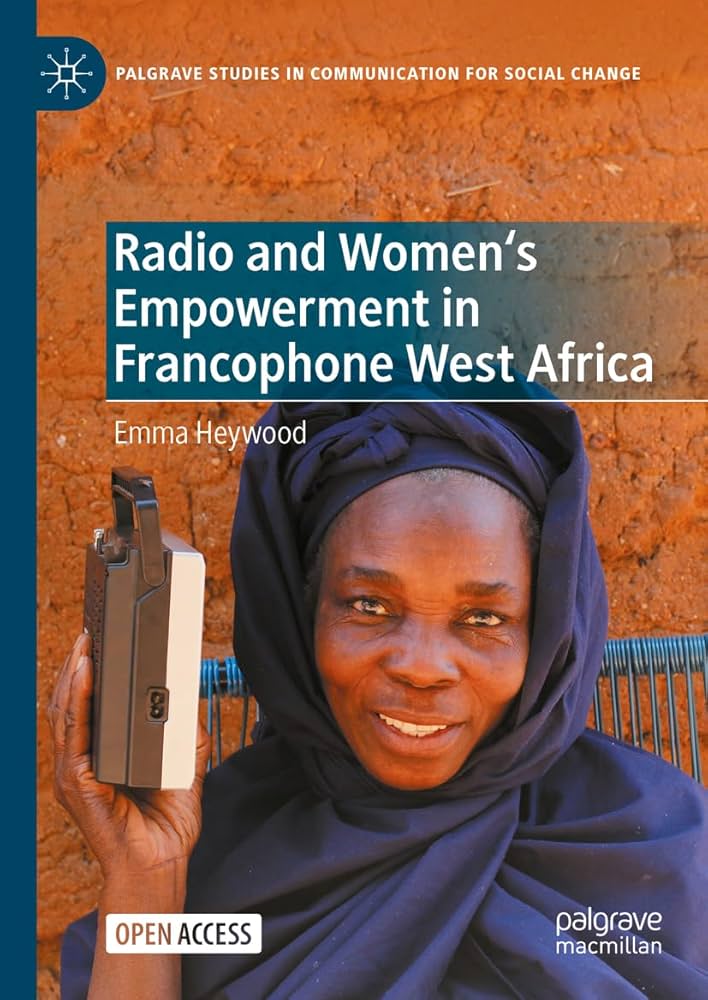Fondation Hirondelle’s research policy is one of our strategic pillars, enabling us to produce analyses of a media landscape that is changing rapidly in both the Global South and North. Among our most important achievements this year were a book on the impact of our radio programmes on women’s autonomy in the Sahel and putting AI to work in boosting the circulation of reliable information.
Asignificant part of 2024 was dedicated to the development of our strategy for the next four years, which defines research as one of our strategic pillars. The aim is to enable our organisation to expand its expertise and its capacity to generate knowledge. In a constantly-changing world, our ambition is to make Fondation Hirondelle more proactive and prescriptive in its learning, in line with its priorities. These priorities include (re)building confidence, social cohesion and civic rights, as well as the conditions for viable media, in fragile situations; the interaction of these challenges with other global issues such as climate change, rising inequality, and a shrinking civic space; new ways of interacting with information, digital media, hybrid news environments (off- and online) and the development of AI; and the need for media education.
Among the results achieved in 2024, we can highlight the publication of Dr. Emma Heywood’s book Radio and Women’s Empowerment in Francophone West Africa (Palgrave Macmillan).
This book summarises the results of numerous studies conducted with Fondation Hirondelle in the Sahel since 2018.
These studies compared the perspectives of audiences, journalists and experts with detailed analyses of the content of programmes produced by Studio Tamani in Mali, Studio Kalangou in Niger, and Studio Yafa in Burkina Faso. The role of these radio stations is examined in relation to a range of subjects including women’s political involvement; women and finance; married life; internally displaced people; and trauma.
The studies reveal that our studios have promoted women’s autonomy by putting their voices at the heart of radio documentaries, thereby contributing to the normalisation of women’s issues.
At the same time, media may also bolster the status quo and gender discrimination by failing to question certain stereotypes, or simply by continuing to give men much more airtime, thereby reinforcing the acceptance of continuing male dominance.
The author stresses the fact that much more research is required to better understand the role of media in promoting women’s rights through broadcast content, types of formats and platform, and the people involved as producers, editors, hosts and guests. She concludes that, at a time when media actors in these three countries are rethinking their profession in the face of a worsening security situation and socio-economic challenges, the importance of women’s roles in these male-dominated arenas should not be underestimated.

EPFL HACKATHON: MAKING AI WORK FOR THE CIRCULATION OF RELIABLE INFORMATION
In partnership with Hestia.ai, a Swiss company specialising in artificial intelligence (AI), Fondation Hirondelle won the Most Innovative Idea Award at the first PeaceTech Hackathon held by EPFL (École Polytechnique Fédérale de Lausanne). Our starting point was the fact that the rapid and cheap spread of rumours can have deadly consequences, especially on populations experiencing crisis. The challenge was therefore to use AI to push reliable, fact-checked information produced by local, professional journalists on social media. In under 30 hours, a multidisciplinary team of students met the complex challenge set by Fondation Hirondelle, developing a working prototype of an AI agent chain that can: 1) collect podcasts produced by Fondation Hirondelle media; 2) transcribe them in text; 3) summarise them; 4) use them to create lists of key points; 5) identify the questions to which this content provides answers; and 6) combine these elements to produce posts to be published on social media. The resulting posts would be checked by human journalists before being made public.
Fondation Hirondelle will continue to explore the best ways to integrate these rapidly-changing technologies as tools for the journalists we support. The key objective is to meet the challenge posed by the AI-driven increase in disinformation, which the World Economic Forum designated in 2024 as the biggest short-term risk to human development.

